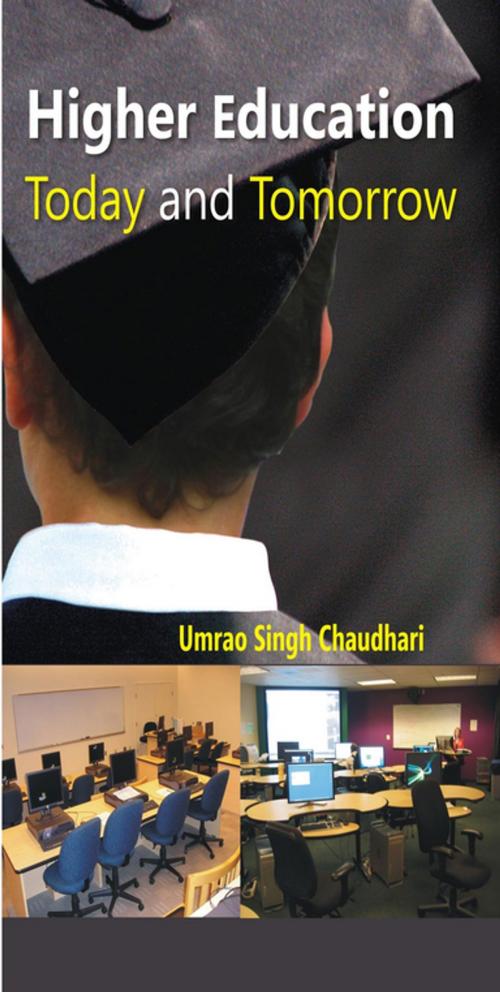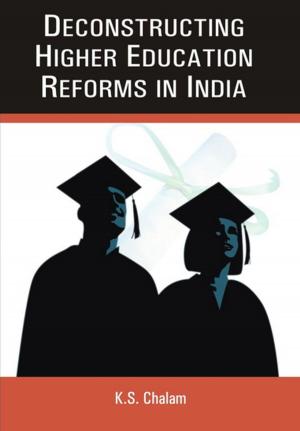Higher Education Today And Tomorrow
Nonfiction, Reference & Language, Education & Teaching, Higher Education| Author: | Umrao Singh Chaudhari | ISBN: | 9788121251471 |
| Publisher: | Gyan Publishing House | Publication: | June 30, 2009 |
| Imprint: | Gyan Publishing House | Language: | English |
| Author: | Umrao Singh Chaudhari |
| ISBN: | 9788121251471 |
| Publisher: | Gyan Publishing House |
| Publication: | June 30, 2009 |
| Imprint: | Gyan Publishing House |
| Language: | English |
In this book, the author examines different aspects of higher education to enable the teachers and administrators to solve the problems generally faced in the colleges and universities. To relate higher education to contemporary social issues, themes on social justice and excellence, social change and higher education and value-orientation in higher education have been included. Since change is permanent and uncertainty is certain in today's world, the author pleads to have different epistemology and pedagogy for the institutions of higher learning. Growing complexity of the world has the power to dislocate the 'self'. What matters most, therefore, is not knowledge that teachers impart to the learners, because knowledge is short-lived and contestable. On the other hand, "student's mode of being" that enables them to deal with the supercomplex world, is of utmost importance for copability. Hence, the student's being must get preference to knowledge in educational transactions. ,Classrooms of colleges and universities have been reduced to 'lesson hearing rooms'. They are antidialogical and they suffer from 'narration sickness'. They have to be made hospitable to questioning and disagreement. We are living in an epistemic and inquiring society wherein knowledge, meaning and truth are not given. They are to be explored and constructed in an interactive and collaborative endeavour by the teachers and students. For successful higher education, there must always be certain freshness in knowledge dealt with. It must either be new in itself or it must be invested with some novelty of application to the new world.
In this book, the author examines different aspects of higher education to enable the teachers and administrators to solve the problems generally faced in the colleges and universities. To relate higher education to contemporary social issues, themes on social justice and excellence, social change and higher education and value-orientation in higher education have been included. Since change is permanent and uncertainty is certain in today's world, the author pleads to have different epistemology and pedagogy for the institutions of higher learning. Growing complexity of the world has the power to dislocate the 'self'. What matters most, therefore, is not knowledge that teachers impart to the learners, because knowledge is short-lived and contestable. On the other hand, "student's mode of being" that enables them to deal with the supercomplex world, is of utmost importance for copability. Hence, the student's being must get preference to knowledge in educational transactions. ,Classrooms of colleges and universities have been reduced to 'lesson hearing rooms'. They are antidialogical and they suffer from 'narration sickness'. They have to be made hospitable to questioning and disagreement. We are living in an epistemic and inquiring society wherein knowledge, meaning and truth are not given. They are to be explored and constructed in an interactive and collaborative endeavour by the teachers and students. For successful higher education, there must always be certain freshness in knowledge dealt with. It must either be new in itself or it must be invested with some novelty of application to the new world.















